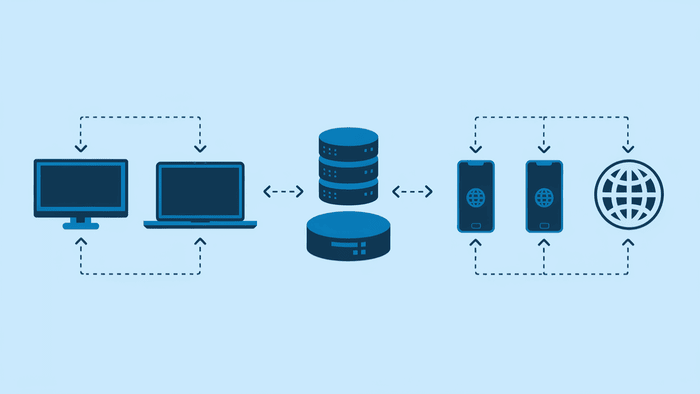To ensure a high level of security and privacy on the Internet, many users today are actively using such a solution as mobile proxies. This software and hardware complex will be embedded in the chain of interaction between the user and the network, passing through traffic in the forward and reverse directions.
This process also changes the actual IP address and geolocation of the user’s device to the technical parameters of the proxy server. This process is called proxying Internet requests. All this is realised through GSM network operators. Hence, the name – mobile proxy.
All requests will go through the mobile operator, and at the output, they will receive the IP address that is provided to real users. Thanks to this, the system will see you as a regular user who connects to the Internet through the mobile network. This eliminates blocking access restrictions and increases resistance to hacker attacks.
What is a mobile IP address?
A mobile IP address is a unique technical solution because of its characteristics. It is conditioned by the very specifics of the mobile Internet. Any modern GSM operator serves a huge number of subscribers.
Moreover, their number is constantly increasing. Giving each of them its own unique IP address is not possible from a technical point of view. Besides, it would be completely inexpedient from the material point of view.
Mobile network operators have taken a more rational way. They create a large pool of IP addresses and connect subscribers to it.
As a result, it turns out that simultaneously, through one address, the Internet will be connected to a huge number of people. For each new connection, the user will be allocated a new IP from the pool to which he or she is connected.
This organisation of work with the mobile Internet has led to the need to make adjustments to the algorithms for restricting access and banning systems of Internet sites and social networks.
Otherwise, if one mobile IP was blocked, thousands of users working at that address would be restricted. No site can afford to allow such a thing. This is the uniqueness of mobile IP addresses.
Features of mobile proxy operation
Today, there are quite a few variants of mobile proxy server implementation. Each of the companies providing these services chooses the optimal solution for itself.
However, the most effective and productive process will still be the redirection of traffic from mobile network operators’ real SIM cards to internal servers. This solution provides a number of significant advantages in practice:
- Work from smartphones and tablets is perceived by the system as a quite natural phenomenon. That is, the user device passes authentication without any problems, and IMEI is entered into the cellular node’s register.
- All user requests will go through the mobile Internet of GSM networks regardless of the device from which you connect to the Internet. This is ensured by the fact that the proxy server takes control of data transmission through mobile devices.
- A quality access control system is formed. Mobile proxies are able to limit the bandwidth on certain channels and create IP pools where addresses will be changed dynamically. Thanks to the connection to parallel ports, it is possible to implement simultaneous work on SOCKS5 and HTTPS protocols.

Thanks to this mobile proxy, users get anonymous and secure work on the Internet, effective circumvention of regional access restrictions, the ability to work simultaneously with different accounts in social networks, the use of tools that automate actions in the network and more.
This solution will be indispensable in the work of Internet marketers, arbitrageurs, SEO and SMM specialists, and many other people who conduct professional activities online. Mobile proxies will also be useful for ordinary users who would like to ensure the most functional and stable online experience.
What is the difference between mobile proxies and server proxies?
Server proxies are the closest analogue to mobile proxy servers. Their work is based on the IP addresses of hosting providers or cloud services. In this case, each user will be provided with a separate address, which will remain unchanged throughout the application.
This means that if the system notices illegal activity coming from that IP, it will block it or reduce the trust level of the account.
This will not happen if you use mobile proxies. We have already mentioned that mobile network operators, in this case, allocate the same addresses to users as they do to their other clients.
Again, due to the limited resources of mobile IP, today, millions of users share several hundred addresses in the mobile operator’s pool, which are distributed via NAT technology to all devices.
It turns out that if a single mobile IP address is blocked by the algorithm, hundreds of thousands of ordinary mobile network users will also fall under this restriction. As a result, websites and many other sites, including social networks, will simply lose their audience.
The absence of blocking is one of the most significant distinguishing features of mobile proxies from their server-based counterparts, ensuring their high stability and security in the workflow. However, in this case, it is important to choose a reliable service provider.
Here, the best solution today is mobile proxies from MobileProxy.Space service. Take advantage of a free 2-hour trial to see for yourself.

